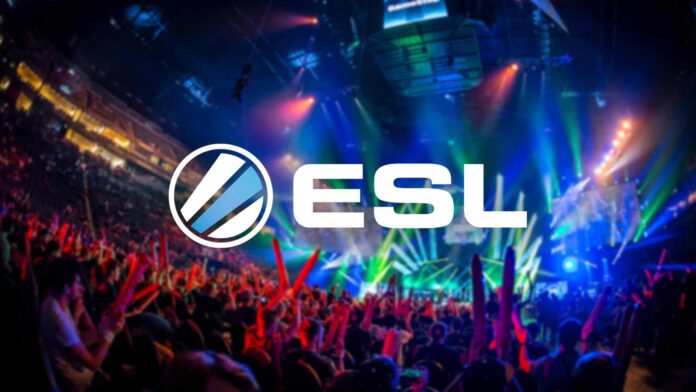On 24 January, the Saudi Arabian Savvy Group announced the purchase and merger of ESL and FACEIT. But what does this mean for Esport?
The acquisition and merger of ESL/Dreamhack and FACEIT to form the Saudi Savvy Group have taken the Esports community by surprise. Find out why this deal is flattering but also worrying here.
Welcome to the big boys
A billion dollars for ESL and another 500 million for FACEIT are astronomical sums, but these also show the potential of Esports. Having a new investor willing to pay that kind of money (regardless of his previous background) is an encouraging sign for an industry that is struggling badly with COVID right now.
Of course, if you are backed by the Saudi Arabian government, you are hardly short of money. Still, the amounts paid are astonishing, even for a country that has the second largest oil reserves in the world.
But how big are these figures really? Let’s take a recent example of a “traditional” sport for comparison. Premier League club Newcastle United has been taken over by a consortium led by the same Saudi Arabian Public Invest Fund (PIF) that has now bought ESL and FACEIT. However, they “only” paid around $300 million for an 80% stake in December. That’s a fraction of the Esports business.
@MTGAB‘s @ESL has been sold for $1 Billion USD to Savvy Gaming Group, which is being backed financially by the Saudi Arabian government’s Public Investment Fund. https://t.co/2yFgMpv1DC pic.twitter.com/STYVESKysn
– The Esports Observer (@esportsobserved) January 24, 2022
From Sportswashing to Esportswashing
Obviously, a government fund like the PIF is hardly doing charity work. So why buy up such a large chunk of Esports? If you’ve been following some major sporting events over the past few years, sportswashing should be a familiar term at this point.
Be it sports clubs like Paris St Germain, who is controlled by Qatar, or entire events like the upcoming 2022 Winter Olympics in Beijing, China. Sports and their associated events have become tools to refresh PR and make a good impression.
Amnesty International warned that the international community must not allow China to use the Winter Olympics in Beijing as a “sportswashing opportunity” and must avoid being “complicit in a propaganda exercise” https://t.co/xzFlH5KSzf
– AFP News Agency (@AFP) January 19, 2022
While there are always voices against sportswashing, not much happens unless the majority of participants and fans reject the event. Most of the time, nothing happens because none of the parties wants to give up the competition, the prize money or the entertainment. This could be seen during the 2014 Winter Olympics in Russia or this year’s World Cup in Qatar.
Now esports is facing a similar dilemma. The new owners have not yet announced any significant changes, but their ownership alone is enough to cause unease. One knows that one’s hobby is just being exploited to produce nice publicity for the government, which actually regularly disregards basic human rights. Saudi Arabia, for example, is ranked 173 out of 176 in the University of Würzberg’s Democracy Matrix and is described as a “Hard Autocracy”.
So will Esport now follow the same path as “traditional” sport and put business above morality?
Can and will Esport fight against this?
Esportswashing actually did not come entirely without warning. The NEOM partnership with the LEC and BLAST, which was announced last year and then cancelled, were clear warning signals for the future. At that time, however, the great outrage of the community and the fans was enough to make Riot and BLAST reconsider things.
After Microsoft and Activision/Blizzard, the next prank:
The Saudis have bought ESL and FACEIT.
What’s coming tomorrow? The Vatican buying Ubisoft? https://t.co/dEY7HPxCTx
– Hänno 🏳️🌈 EINS (@HandIOfIBlood) January 24, 2022
But will it work here? The public is much quieter than it was then. Of course, this direct selling limits the ability of fans to intervene and express their discontent. Still, esports is not without options.
Ultimately, the complete power in esports, both good and bad, lies in the hands of the game developers of the title in question. Theoretically, they could decide to stop issuing tournament licences. But unless every single developer and publisher decides to completely seal off the new ESL FACEIT Group, that remains just a fantasy. And given the reluctance of some developers (like Valve) to take complete control, it remains a far-off fantasy.
And now what?
Given the growth of the industry, it is no wonder that Esportswashing is actually happening. Still, it hurts to see it happen when it does. So what can we do to counteract it?
Unfortunately, there is not much we can do. Simply voicing concerns within the community and somehow passing them on to developers and publishers is the only way to oppose it. A simple fan can only do so much against a multi-million dollar government. It’s an experience that “traditional” sports fans have probably become accustomed to over the years, and one that we now seem to be facing as well.
This could ultimately be the price we pay for being part of Esports’ journey into mainstream society.


